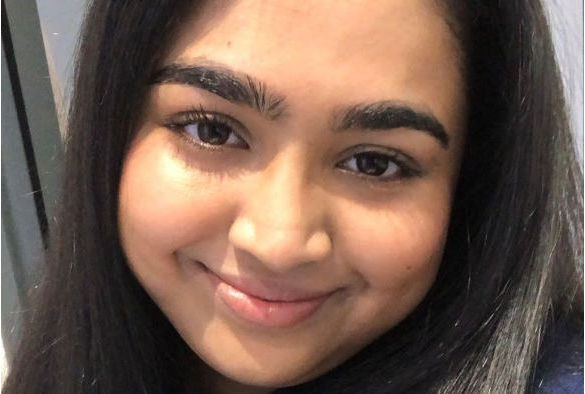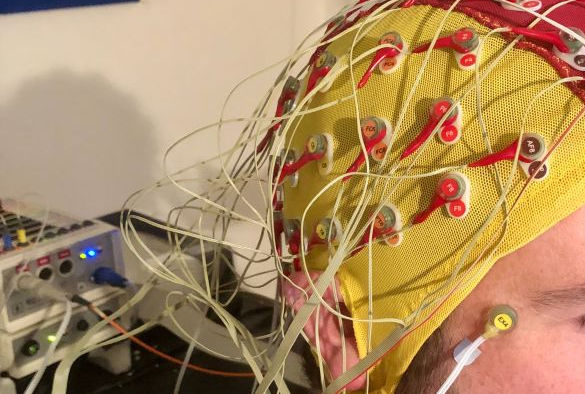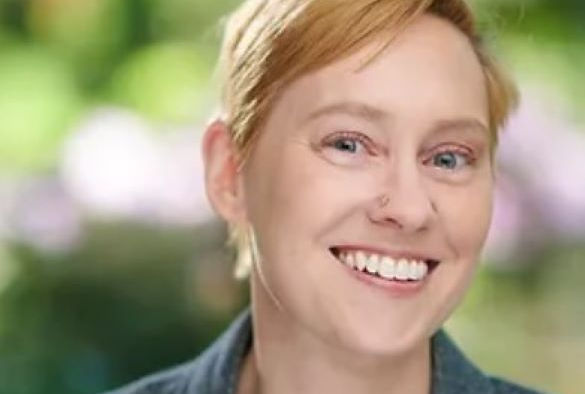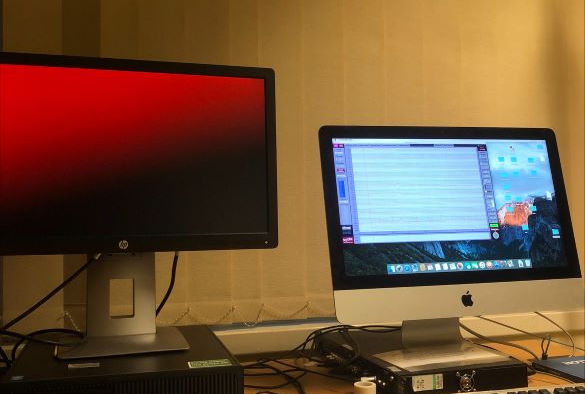
This summer Daina Joseph, a second-year BSc Psychology student, spent time on a research internship under the supervision of Dr Reshanne Reeder, a lecturer in the Department of Psychology.
Daina worked on a research project exploring behavioural and neuro markers of hallucinations. Here, Daina and Dr Reeder discuss the summer internship, conducting the research project at the Department of Psychology and the benefits of taking part in the internship.
How did you become involved with the summer internship programme?
Daina: I came across it through an email. I think it was Professor Eric Robinson who sent it across and I looked into the prospects of what the internship offers. I want to specialise in Cognitive Neuroscience and I realised the internship was very flexible, so I had to take that opportunity the second I saw it.
I emailed a few Cognitive Neuro researchers, but Reshanne was my number one choice as she's my third-year supervisor as well. I got an email back from her and that is how we went forward with the internship.
What is your research project about?
Daina: We look at neuro markers of simulated hallucinations and we look at why different people have different visual experiences in this simulation. We look at visual imagery and this is a field that I think not many people may know about it. Obviously, people are aware of visual imagery, but they may not realise that it's a spectrum. Some people have very low visual imagery, some people have none at all. Some people have very high visual imagery.
When you think of an apple, for a lot of people it's quite blurry but they can visualise an apple. For some people, they can't visualise it at all. Some people visualise it so vividly that they can literally see it in front of them. This study is very exploratory. It's very subjective - we don't know what we might find. Reshanne has done previous research on this, so we've got a few ideas of what we might find.
Dr Reeder: Something unique about this internship is that we both learnt EEG analysis for this project over the summer.
What was it like learning EEG Analysis together?
Daina: It was amazing.
Dr Reeder: It was really fun. I think with the internship and getting two new PhD students at the same time, I thought 'It's time to get everyone on the same page' and we all learnt EEG for the study. We had someone come who is an expert in EEG Analysis and taught us how to do the analyses for this project.

What were your day-to-day tasks?
Daina: Every week and day has been quite different. At the start, I was responsible for advertisement and recruitment. I made posters and we made an EEG pamphlet, so people knew what to expect in an EEG. As we started recruiting participants, I got to conduct the EEG data alongside Reshanne's PhD student Wes. Wes and I conducted quite a few sessions and over time I became comfortable doing it myself. I learnt how to guide the participant through the experiment and even the technical things, I know it like muscle memory.
I got to attend lab meetings, I got to attend workshops, I attended an EEG day and we did literature reviews. I've seen what a researcher does and the whole process. It has been an incredible experience.
Because Reshanne is my third-year supervisor, I have a genuine interest in her research so I asked Reshanne if I could continue helping her out.
What has it been like working with one another?
Daina: It has been incredible. Reshanne is an amazing supervisor and Wes too has been wonderful to work alongside. One thing I realised is Reshanne's passion for her field of research and working alongside her has inspired me to mirror that when it comes to specialising in my career.
Dr Reeder: It's been really fun. I particularly like that we have this cohesive lab and we all work together very well. I think there's a good distribution of responsibilities and I think everyone is learning something new. It's been a really fun experience.

Dr Reshanne Reeder is a lecturer at the Department of Psychology.
What are the benefits of taking part in a summer internship for your studies and future employability?
Daina: When it comes to hands-on experience, not many students have this kind of experience during their undergraduate [studies] or even before the third-year project. With this internship, I felt it was very flexible. I'm in an office with other interns who are in a completely different field to what I'm doing. Everyone is doing something very different, so it's very flexible. If this opportunity comes up, I'd tell any student to take it.
Throughout this internship, I've learnt so many skills and so many things that I want to do in my research in the future. In the analysis workshop that we did, I feel I want to learn more about that when it comes to my research. Even EEG - I learnt how much I enjoy it. I think experiences like this, show you things that you might enjoy and that you might not enjoy or the field you might want to specialise in. Whatever [research] field you do get, take the opportunity, because you will learn an incredible amount of skills.
I think with this internship because I've been working alongside Reshanne, I get my name as part of a publication. For many students, that is an incredible opportunity. It makes you stand out. Whether you want to do further study or whether you want to go into a graduate job, you already have that experience that not many people will have.

What advice would you give to students who want to take part in a summer internship?
Daina: Definitely have a look at [research] areas that you would like to go into and email as many researchers as you can. Researchers take on internships and PhD students, so honestly, reach out to people whether it's your AA [Academic Advisor] or whether it's your lecturers. Whatever research you do, take on the opportunity.
I wanted to do cognitive neuroscience, but if I wasn't able to do it and I did something advertised, I think it would still give me valuable experiences into what research is actually like. The procedures behind it, the timelines, and what it's like working with researchers. Just take the opportunity. I think another thing is going into the third year, I feel a lot more confident about my third-year project.
Sometimes not many people reach out to their lecturers, so I think I am more comfortable approaching senior staff. They're very approachable and very supportive. Even with Reshanne's PhD students, I feel there is a sense of community and support. I'm very confident going into my third-year project and in that sense, it's a very valuable thing to take on.
Dr Reeder: I feel that a lot of undergraduate students tend to wait to get into research until their third-year project, but my advice is don't wait. If you are interested in research at all, just start as soon as you can and start reaching out to people. Start early, start as soon as possible.
Daina: The University offer not just internships, but there are so many journal clubs, meetings and societies. Take it all on board. You meet people with similar interests. It's really nice to make those connections and in terms of your career, it gives you an idea of what you want to go into.